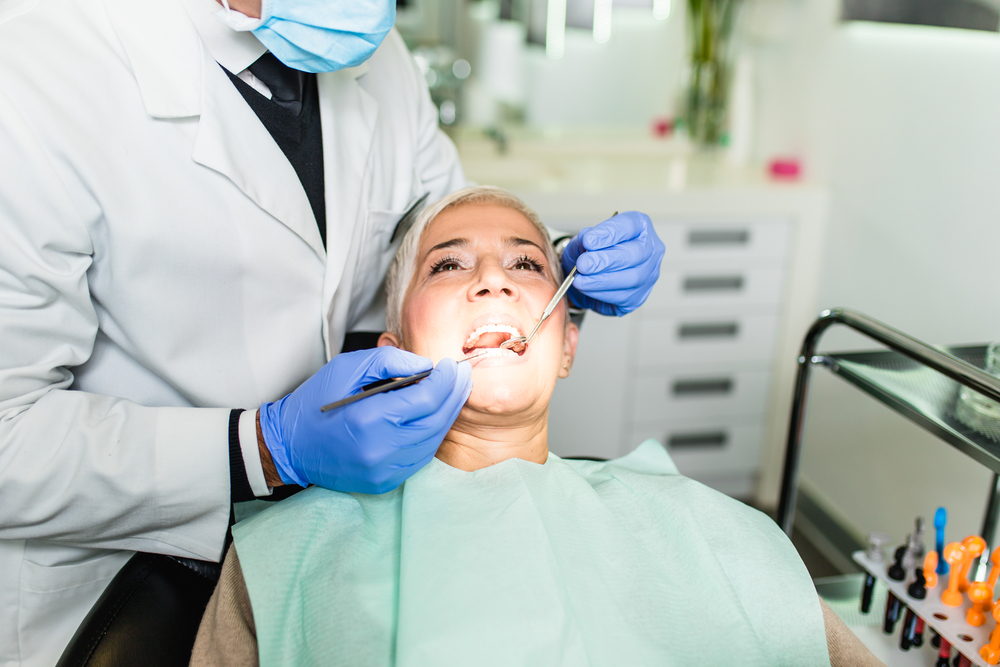How Do Overdentures Work?

When you’re missing a number of teeth and leave this untreated for a long period of time, it can significantly affect your oral health. Not only will your facial muscles begin to droop, but your jawbone will significantly deteriorate over time, making it difficult for you to get any dental treatments done in the future. You will also lose any remaining natural teeth as they will have nothing to be secured against. Fortunately, advancement in dentistry means that you have a range of treatments at your disposal to combat this- overdentures being one of the most popular choices! Here’s what you need to know:
What are overdentures?
This method is a combination of two well-known tooth replacement methods- dental implants and dentures. This works by using a set of prosthetic (and removable) teeth and securing them to your gums with the use of dental implants. This eliminates the obstacle most patients face with conventional dentures- that they move around and aren’t secure enough.
Are you an eligible candidate?
If you’re missing most, or all, your teeth, this in itself puts you down as a great candidate for overdentures! As dental implants are also used, however, this means you need to have a healthy amount of bone left to surgically secure the implants to. Failing which, you’ll need to get a bone graft. Any severe infection or decay will have to be treated first so you can start your treatment with a healthy mouth. Dental imaging and x-rays will help determine if you meet these criteria.
The process for getting overdentures
In your initial consultation, dental x-rays and a thorough evaluation will be carried out. Following this, you will be given treatment for any existing infection. 3-D imaging will help us outline the exact anatomy of your smile to place your dental implants. Your next appointment, in which your implants will be placed, will require up to 3 months of healing. Your implants will be covered with a healing cap until you come in for your final appointment to have your dentures placed.
After-care for overdentures
Your new dentures are softer than your natural teeth so you’ll have to use a soft-bristled toothbrush and special denture-cleaners (designed to be low-abrasive in nature) to ensure your investment lasts for years to come, with the occasional refitting. In the first seven days following your surgery, we recommend sticking to soft foods that require less chewing.
Have any more questions on overdentures? Our expert dental staff at SDG are ready to tackle all your questions!



